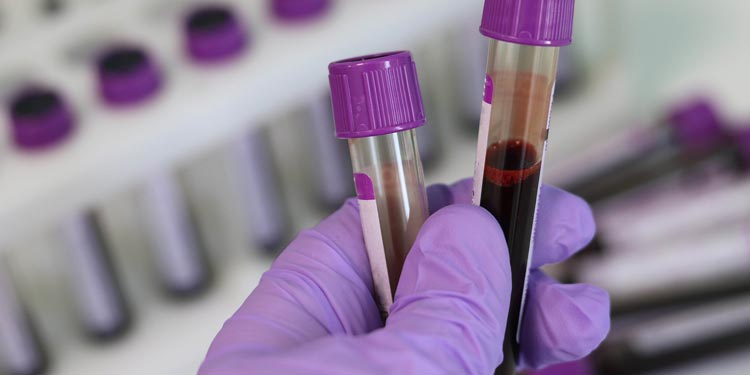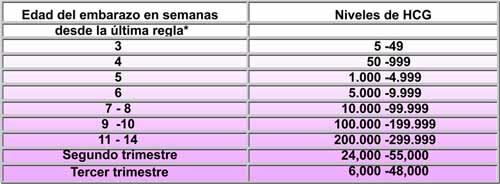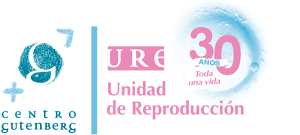Beta hCG (β-hCG): How To Interpret Your Pregnancy Test Result

Anyone who has undergone assisted reproduction treatment knows about this analysis that the doctor orders between 10 and 14 days following the embryo transfer. We are talking about the Beta hCG (β-hCG) analysis.
In this post our intention is to explain what the β-hCG analysis consists of and to give you some relative values so that you can interpret your results.
What is the Beta hCG?
HCG is the abbreviation for Human Chorionic Gonadotropin, also known as the pregnancy hormone.
β-hCG is a glycoprotein that is initially secreted by embryo trophoblast cells shortly after implantation in the mother’s uterus. The quick rise in serum Beta hCG levels following conception makes it an excellent marker of early confirmation of pregnancy.
It is also a commonly used parameter for monitoring the proper progression of gestation, as we know that the value should double every 48-72 hours during the first few weeks of pregnancy.
How is the Beta hCG result interpreted?
The levels of this hormone can be measured through urine (with a traditional pregnancy test purchased at the pharmacy), and through blood, the latter being most reliable, as a blood test is able to detect levels as low as 5 mUI/ml.
Below you can see a table indicating hCG levels post-ovulation in a blood sample:

In this table, Beta hCG values are counted starting from the first day of your last missed period, meaning day 14 post ovulation. At URE Centro Gutenberg we ask patients to have their beta analysed 16 days following the egg retrieval. For example, if you transfer a day-3 embryo you will be asked to have your beta analysed after 13 days, as 3+13 is 16. If you have a day-5 blastocyst embryo transferred you will be asked to have your beta analysed after 11 days, as 5+11 is 16.
An hCG which is less than 5 mIU/cc is almost always negative, a value greater than 100 mIU/cc is positive, and a value between 5 and 100 mIU/cc is indeterminate, meaning you will have to undergo the test again to confirm whether the beta value is rising. We must always keep in mind that these values are meant to serve as a guide and that they can vary significantly from one woman to another.
Why is your Beta hCG level low?
You must remember that a normal pregnancy may have low hCG levels and result in a perfectly healthy baby. Sometimes a beta value is low simply because some embryos have a slower implantation process. There are also other factors which may cause the beta value to be lower:
- Obesity. hCG concentrations are significantly lower in obese pregnant women (BMI over 30 kg/m2), but the time it takes the beta value to double is similar to other women.
- PGD. There are studies that show an association between a lower hCG value and embryos that have undergone Pre-Implantation Genetic Diagnosis.
- Fresh or frozen embryos. There are studies which show a relationship between frozen embryos and a decreased production of hCG.
- Ectopic Pregnancy.
Why is your Beta hCG level high?
If a beta value is higher than normal we cannot always assume that this is indicative of a multiple pregnancy; rather, we must wait for confirmation through an ultrasound scan.
Are you thinking of undergoing fertility treatment but still have questions about the Beta hCG? Don’t worry! When the time comes your assisted reproduction specialist will provide you with all the information you need.

